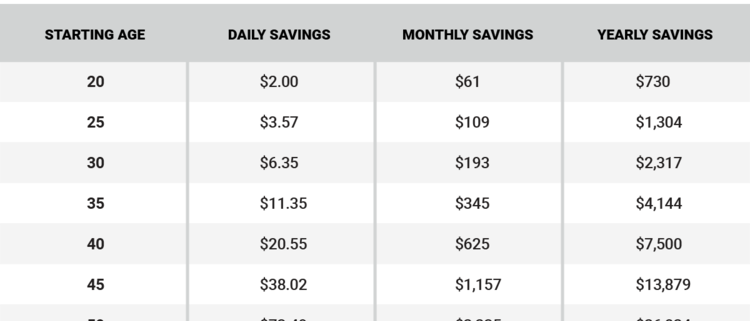An individual retirement account (IRA) is a tax-advantaged account that allows individuals to save and invest for retirement. Unlike a 401(k), this type of account can be created individually without employer sponsorship. However, you can still have an IRA even if you have a retirement plan through your employer.
You can open an IRA through a bank or other financial institution, a personal broker, or an online brokerage.
Key Takeaways
- An IRA is a tax-advantaged retirement account available to individuals and small businesses.
- There are several types of IRAs: traditional, Roth, Rollover, SIMPLE, and SEP.
- Annual contribution limitations apply to all types of IRAs.
- You can have an IRA in addition to a 401(k).
How does an IRA work?
Anyone with earned income can open an IRA. You may have an IRA in addition to an employer’s 401(k) or other retirement plan. An IRA works by investing the money saved in the account in various financial products, such as stocks, bonds, exchange-traded funds (ETFs), and mutual funds. There are several types of IRAs, and the rules and tax advantages vary by type. As always, there are income limitations on IRA eligibility.
Types of IRAs
Traditional IRA
Contributions to a traditional IRA are generally tax-deductible, meaning if you contributed $2000 to your IRA in one year, your taxable income would decrease by that amount.
Your contributions then grow on a tax-deferred basis, meaning when you withdraw in retirement, you will be taxed at your regular income tax rate for that year. All IRAs have annual contribution limits. These income limits change yearly and can be found on the IRS website here.
Roth IRA
Roth IRA contributions are not tax-deductible, but the distributions taken once in retirement are tax-free. This means you contribute to a Roth IRA with post-tax income, and do not pay any further taxes, even on investment gains.
Additionally, Roth IRAs do not have required minimum distributions (RMDs), so if you do not need the money at the start of retirement, you can leave it in the account where it can grow tax-free.
Rollover IRA
A rollover IRA is designed to hold funds transferred from an employer-sponsored retirement fund. This allows you to consolidate savings from past jobs into one account.
When done correctly, you can avoid immediate taxes and early withdrawal penalties you may have faced for simply taking the funds out of the original account. This may not apply if, for example, you roll over a traditional 401(k) into a Roth IRA. It is best to consult a professional to avoid penalties or unexpected taxes, especially if your account has a high balance.
SIMPLE IRA
A SIMPLE (Savings Incentive Match Plan for Employees) IRA allows small businesses to offer a retirement matching plan for employees, as they do not have the high start-up and operating costs of traditional retirement plans. Companies with 100 or fewer employees generally use it.
Currently, the employer is required to either:
- Match contributions up to 3% of employee compensation, or
- Provide a 2% non-elective contribution for each eligible employee. This means that even if the employee chooses not to contribute to the IRA, the employer still must make contributions of 2% of the employee’s annual income, up to the yearly limit.
Contribution limits change by year, so it is best to check the IRS website for updated information.
SEP IRA
A SEP (Simplified Employee Pension) IRA allows employers to contribute to a traditional IRA set up for employees. Any business, regardless of size, or anyone self-employed may have an SEP IRA. A SEP IRA is funded only through employer contributions, and the employer must contribute equal percentages of income for all eligible employees.
Business owners (or yourself, if self-employed) may deduct contributions for tax purposes. Withdrawals from SEP IRAs are taxed as regular income.
IRA Benefits
An IRA offers a flexible and tax-advantaged way to save for retirement. There are several benefits. You can have an IRA and an employer plan, allowing for more tax-advantaged annual savings. They provide small businesses with retirement planning options, as SIMPLE and SEP IRAs do not come with the hefty fees and start-up costs of traditional plans.
IRAs also allow self-employed individuals to access the tax advantages of retirement accounts.
Contribution Limitations
All IRAs come with annual contribution limits. These limits change, but for 2024 and 2025, the current limits are no more than $7,000 ($8,000 if over age 50) or, if your income is less than that, your taxable compensation for the year.
How to Open an IRA
You can open an IRA through an online brokerage, mutual fund company, or bank. Where to open an IRA depends on your individual needs.
Bottom Line
IRAs are an important tool in retirement planning. If you are unsure what your best choice is, Horizons Wealth Management can help advise you with fee-only financial services. As fiduciaries, we focus on client-centered relationships that will give you peace of mind on your financial journey.
Individual Retirement Account FAQ
What does “IRA” stand for?
IRA stands for Individual Retirement Account.
Can you lose money in an IRA?
It is possible, given a diversified portfolio.
How much does it cost to start an IRA?
Opening an IRA does not cost anything, but some require a minimum initial deposit. Some brokers charge trading commissions, or if you invest in mutual funds or ETFs, you’ll have to pay an expense ratio. However, these fees are generally not very high.
Is an IRA or 401(k) better?
An IRA is not better than a 401(k), just different. You may have an IRA in addition to a 401(k). If you do not have access to a 401(k) or similar plan because your employer does not offer one, or you are self-employed, an IRA is a good choice.
Are there age restrictions to open an IRA?
There is no minimum age to open an IRA. However, a parent must open a custodial account for a minor until the child is 18 and they still need earned income.
What is the best way to grow an IRA?
The best way to ensure growth in an IRA is to begin investing as early as possible, so the funds have the most time to grow before retirement. As long as IRA investments are diversified, it is unlikely to incur a loss.










